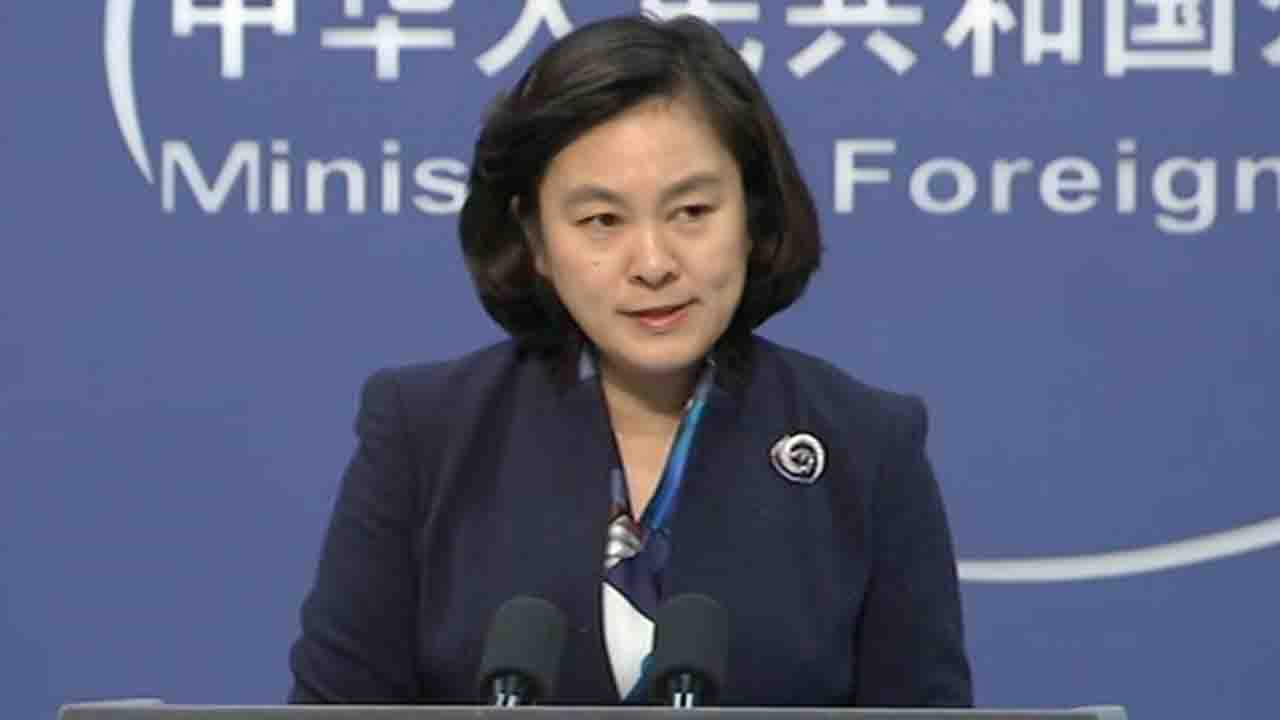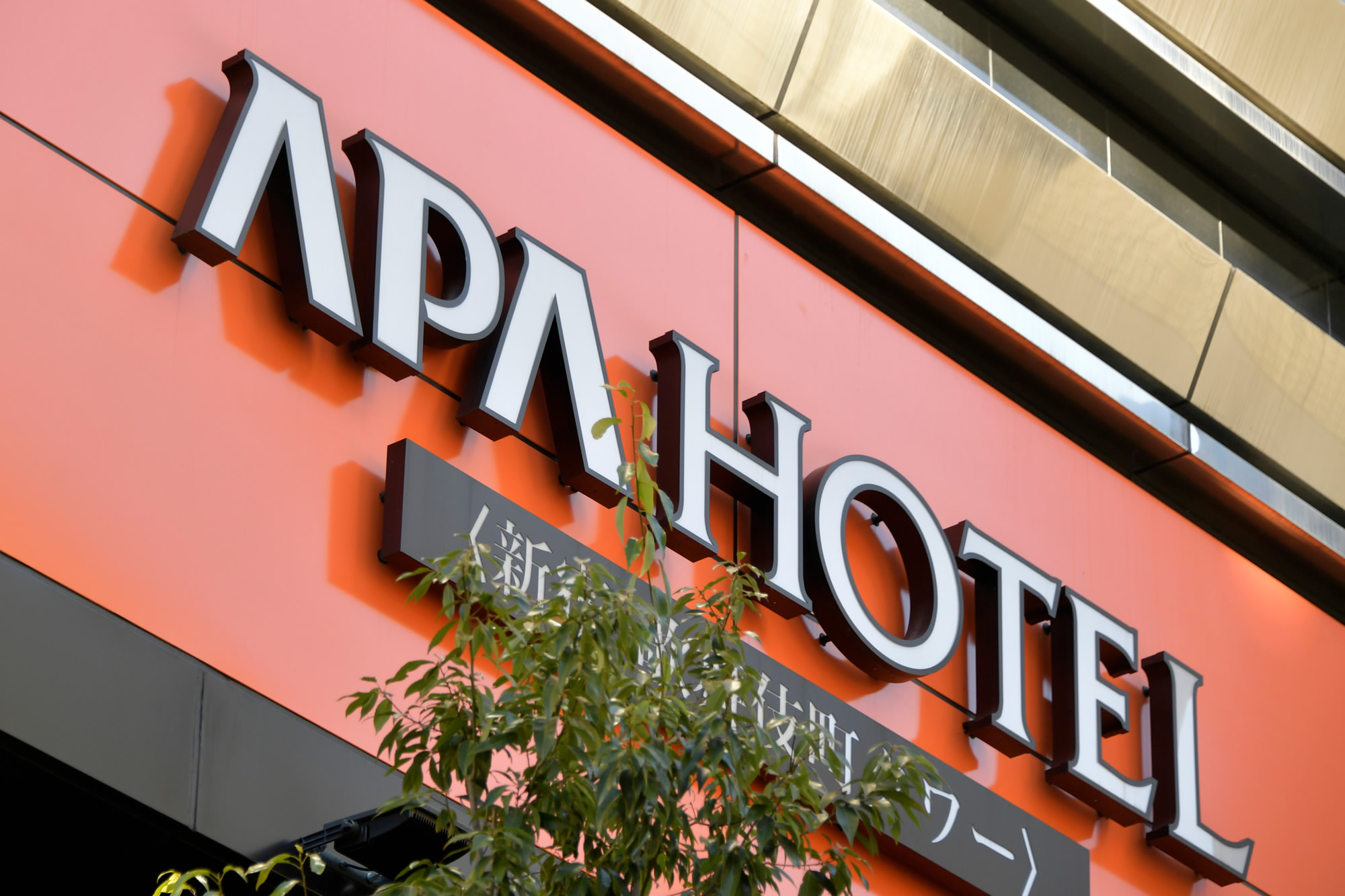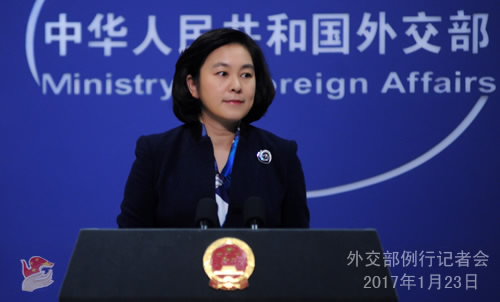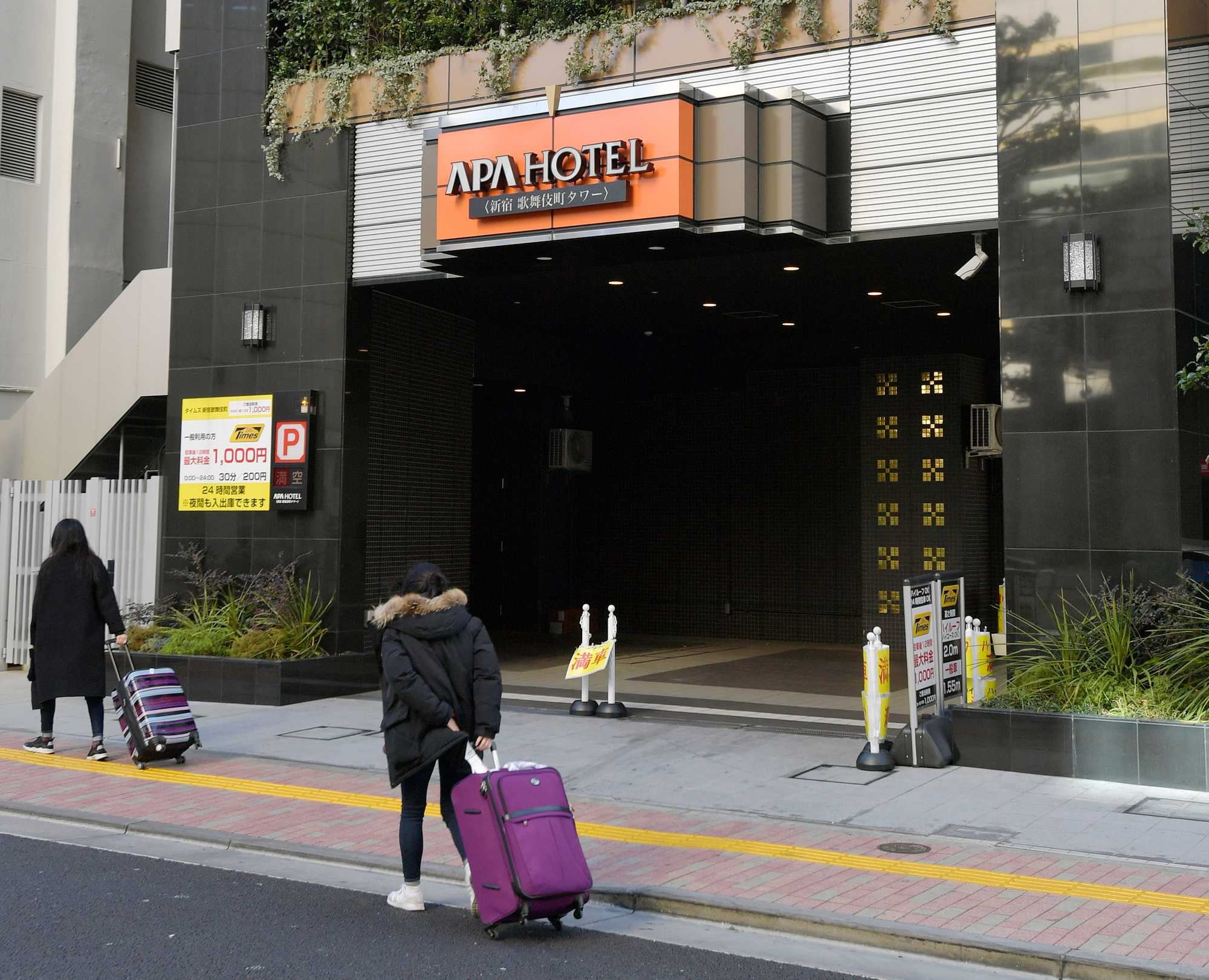
Politics
13:32, 24-Jan-2017
China slams revisionist history books in Japan's APA hotels
Updated
10:37, 28-Jun-2018

China leveled new criticism on Monday at Japan's largest hotel chain, APA Group, for placing revisionist history books that deny Japanese war crimes during World War Two in its hotel rooms.
“To forget about history is betrayal, and to deny guilt is doubling the crime,” Foreign Ministry spokeswoman Hua Chunying told journalists, mirroring earlier comments she made last week.
“A small group of Japanese individuals are desperate to erase the historical crime. The more eager they are to do so, the more likely it will evoke people's memory of the past,” she added, noting that the recent actions had “already triggered strong indignation of the Chinese people.”

General view of Japanese hotel chain APA Hotel in Tokyo, Japan, January 21, 2017. /CFP Photo
General view of Japanese hotel chain APA Hotel in Tokyo, Japan, January 21, 2017. /CFP Photo
The APA hotel chain sparked outrage in China and South Korea, after it emerged last week that it had placed copies of the book “Theoretical Modern History II - The Real History of Japan” in its hotel rooms across Japan as well as selling them in the hotels' lobbies.
The book, written by APA Group president Toshio Motoya under a pseudonym, denies the 1937 Nanjing Massacre by Japanese troops, which resulted in some 300,000 deaths, as well as the forced recruitment of “comfort women.”
Despite the furore, the APA Group refused to budge. "We have no intention to withdraw this book from our guest rooms" it said in a statement on its website last week.
No condemnation came from the Japanese authorities and Japan's Foreign Minister Fumio Kishida even urged Beijing not to focus too much on a short episode in China and Japan’s 2,000-year history.

Chinese Foreign Ministry spokesperson Hua Chunying speaks at a regular press conference on January 23, 2017. /MOFA Photo
Chinese Foreign Ministry spokesperson Hua Chunying speaks at a regular press conference on January 23, 2017. /MOFA Photo
Hua however hit back again on Monday, insisting: “The Japanese government should not use " freedom of speech" as an excuse to shirk its responsibilities, still less mislead the public.”
She called on Tokyo to “realize the gravity of the issue” and “properly handle” the issue to avoid disrupting bilateral relations.

Tourists walk in front of Japanese hotel chain APA Hotel in Tokyo, Japan, January 21, 2017. /CFP Photo
Tourists walk in front of Japanese hotel chain APA Hotel in Tokyo, Japan, January 21, 2017. /CFP Photo
Tensions regularly flare up between Japan on one side, and China and South Korea on the other, over what many in the region see as Japan’s failure to make amends for its actions during World War Two.
Among the controversial statements in Motoya’s book are the view that "the Nanking Massacre was fabricated by the Chinese side and did not actually happen" and that "comfort women" were just common prostitutes, rather than women forced into sexual slavery by Japanese troops.
4km

SITEMAP
Copyright © 2018 CGTN. Beijing ICP prepared NO.16065310-3
Copyright © 2018 CGTN. Beijing ICP prepared NO.16065310-3